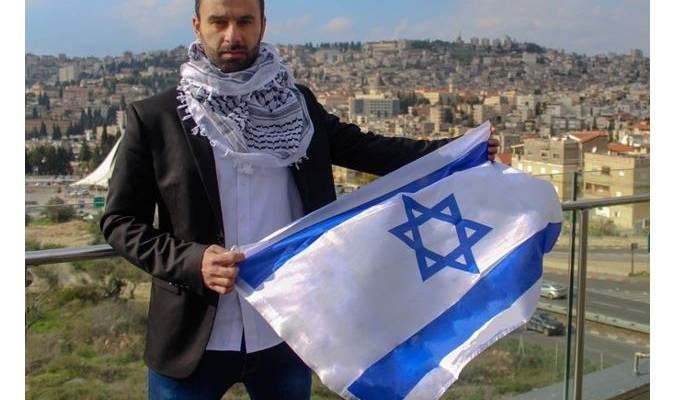Just how far will some journalists go to imply that Israeli Jews are anti-Arab racists or bigots?
By Simon Plosker, Honest Reporting
According to an NPR report titled “Palestinians weigh in on Israeli street protests“:
“Palestinians have largely been absent from the historic demonstrations in Israel. Hundreds of thousands of Jewish Israelis are protesting plans by the right-wing government to weaken the courts. NPR’s Daniel Estrin explored why Palestinians are rarely in the crowd.”
Introducing the story about “Palestinians” is misleading given that one of the two Arabs interviewed is an Israeli-Arab citizen while the other happens to be a former spokesperson for the Ramallah-based Palestinian Authority.
Clearly, there is a significant difference in how Arab citizens of Israel relate to the country and the demonstrations, as opposed to Palestinians living in the West Bank (Judea and Samaria) or Gaza who do not hold Israeli citizenship. However, this is not something that Estrin addresses.
He says: “Palestinian political activist Nour Odeh is following the protests from where she lives in the West Bank, where Israel maintains a military occupation, and there is no democracy.” [Emphasis added.]
Estrin fails to point out that the lack of democracy in the West Bank is primarily a symptom of the Palestinian Authority’s refusal to hold elections, the last of which took place for the parliament in 2006 and for the presidency in 2005.
But more seriously, Estrin claims (at 1 min 20):
“Some Israeli Jewish protesters say they don’t want Arab citizens in the streets protesting with them.”
To back up this assertion, Estrin interviews one of the protesters:
ZOHAR DVIR: Let’s say, keep it clean…
ESTRIN: Zohar Dvir a retired deputy police commissioner.
DVIR: …Not, you know, to see Palestine flags.”
But did Zohar Dvir really say that he did not want Arab citizens protesting alongside him?
We tracked down Major General (ret.) Zohar Dvir, who happens to be a fellow at the International Institute for Counter-Terrorism (ICT) at Reichman University, Herzliya, and asked him to clarify what he had actually said to NPR some weeks prior to the publication of Estrin’s report.
He told us:
“Having Israeli Arabs at the protests would be a wonderful thing and they are welcome to join. It’s only the Palestinian flags that are problematic as they are a distraction from the main purpose of the pro-democracy campaign.”
That’s one significant leap from not wanting Arabs at the protests to not wanting Palestinian flags. It also leaves Daniel Estrin and NPR with questions to answer concerning the editing of Dvir’s interview. It appears that Estrin has deliberately misrepresented Dvir, leaving the audience to potentially consider the interviewee to be racist or bigoted.
The differentiation between Arabs and Palestinian flags also chimes with some other recent pieces based on Associated Press copy that examined the lack of Arab participation in the demonstrations.
“A small contingent of left-wing Israelis who oppose the military rule has been ostracized by other protesters for waving the Palestinian flag and trying to raise the Palestinian issue in the protests, for fear that it might push more mainstream Israelis away or be used by opponents to smear the protests as a cover for radical leftists.”
Furthermore:
“Organizers say they have repeatedly invited Arab Israelis to participate but are keeping their message focused tightly on the overhaul. …
“Protest organizer Shir Nosatzki said she recognized the complexities keeping Arab Israelis away, but added the movement has reached out to the community repeatedly and has had a growing number of Arabs speak at the protests.”
HonestReporting has sent a complaint to NPR’s Public Editor calling for an investigation into the unethical journalism behind Daniel Estrin’s treatment of Zohar Dvir. Readers can also send their complaints via the Public Editor’s contact form, making sure to note that the item was heard on the “All Things Considered” program and to supply the URL.
